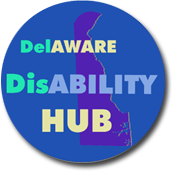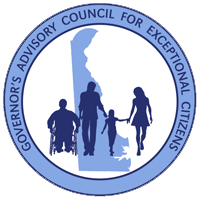New to Disability
The word disability or disabilities is a broad term referring to impairments, activity limitation, or restrictive participation. Impairment is a problem in the function of the body or the structure of the body. Activity limitation is a difficulty encountered by a person in performing a specific action or task. Restrictive participation is a problem experienced by a person involved in life situations.
A Disability is not just a health problem. It is a complex issue reflecting the interaction between features of a person's body and the society in which they live. Overcoming the difficulties faced by individuals with disabilities requires societal intervention to remove the social and environmental barriers they face in life. Individuals can be born with a disability or develop one during their lifetime.
The services an individual with a disability receives depends on what definition is being recognized.
- An individual with a disability is defined by the ADA as a person who has a physical or mental impairment that substantially limits one or more major life activities, a person who has a history or record of such an impairment, or a person who is perceived by others as having such an impairment.
- The definition of disability under the Social Security Administration is different than other programs. There are two Social Security Programs for persons with disabilities. They are SSI and SSDI. Social Security pays only for total disability. No benefits are payable for partial disability or for short-term disability. "Disability" under Social Security is based on your inability to work. You are considered disabled under Social Security rules if:
This is a strict definition of disability. Social Security program rules assume that working families have access to other resources to provide support during periods of short-term disabilities, including workers' compensation, insurance, savings and investments.
- You cannot do work that you did before;
- You cannot adjust to other work because of your medical condition(s); and
- Your disability has lasted or is expected to last for at least one year or to result in death.
- Section 504 of the Rehabilitation Act of 1973 defines a person with a disability as an individual how has:
A mental or physical impairment, a record or impairment, or is regarded as having an impairment which substantially limits one or more major life activities such as but not limited to: breathing, walking, seeing, self-care, performing schoolwork, speaking and learning.- The Individuals with Disabilities Education Act (IDEA) terms and definitions guide states, in determining who is eligible for special education under IDEA, a child with a disability means:
With mental retardation, hearing impairments (including deafness), speech or language impairments, visual impairments (including blindness), serious emotional disturbance (referred to in this title as 'emotional disturbance'), orthopedic impairments, autism, traumatic brain injury, other health impairments, or specific learning disabilities and who reason thereof, needs special education and related and services.
Individuals with disabilities have the same needs wants and desires as everyone else. The health needs are the same as people with and without disabilities for many of life's illnesses or diseases. Individuals with Disabilities may need assistance to live with, adapt to or overcome physical or cognitive difficulties. They may require assistance to function successfully in areas where barriers limit access to what many take for granted.
Being labeled as a person having a disability does not mean lacking abilities or being less than anyone else. People with disabilities laugh, cry and experience emotions and feelings just like everyone else. In life we all face challenges. Challenges for people with disabilities may be different from the challenges faced by others. We are all "Differently Abled."









